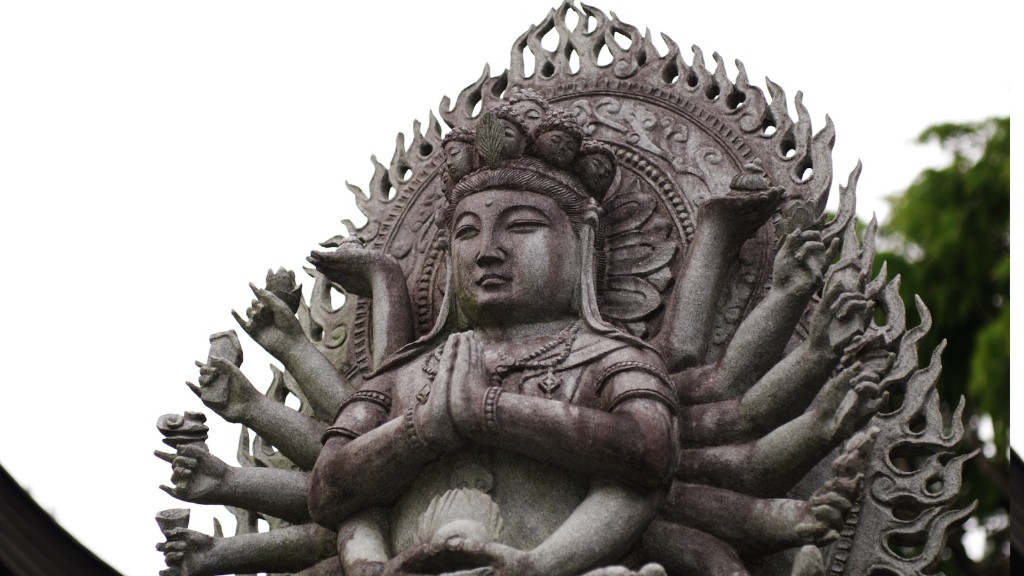What Are The Core Beliefs Of Hinduism?
Hinduism is an ancient religion originating from the Indian subcontinent. It is polytheistic, having over a billion adherents, and is the world’s third largest religion. It is based on a diverse set of beliefs and traditions which, in their entirety, are sometimes referred to as Sanātana Dharma, meaning “eternal law”. Traditionally, Hindus consider themselves to be part of the Vedic tradition. Hinduism has four core beliefs that are essential to the faith.
The Vedas
The Vedas are a collection of four ancient scriptures which form the foundation of Hindu belief. They are considered to be the most sacred texts in Hinduism and are believed to contain the highest truths of all revelation. The Vedas provide the foundation for many other scriptures, rituals, and practices. They provide the basis for Hindu beliefs about God, the soul, karma, reincarnation, and other fundamental topics.
Karma
Karma is the belief that our actions have consequences, both in this life and in our future lives. Good deeds result in positive karma, while negative deeds lead to negative karma. This belief is based on the idea that one’s actions in life will determine their fate in the next life, as well as the lives of their family and ancestors. Hindus believe that it is important to live an ethical life and practice good karma so that they may attain liberation and break the cycle of rebirth.
Reincarnation
Reincarnation, or the cycle of rebirth, is an essential part of Hindu belief. Hindus believe that after death, the soul is reincarnated into a new body, either human or animal. Through reincarnation a person can improve upon the negative karma that they have accumulated over multiple lifetimes. Reincarnation is the foundation of Hindu eschatology: the belief that one’s spiritual journey will continue until the attainment of moksha, or liberation from the cycle of birth and death.
Brahman
Brahman is the Supreme Being, the ultimate reality of the universe. Hindus believe that Brahman is omnipresent, eternal, and unchanging, while at the same time being immanent and involved in the universe. Brahman is seen as the source of all Being and non-being and is often personified as a variety of gods and goddesses. Hindus do not worship Brahman as an individual entity, but rather as the essence of the cosmos.
The Cosmic Purpose Of Life
Hinduism views life as having a cosmic purpose, which is to strive for the attainment of liberation from the cycle of rebirth. This is seen as a way to reunite with Brahman, and is achieved through a life of virtuous action and devotion to the Divine. Hindus strive to live a life of virtue and meaning so that they may experience liberation in this life or the next.
The Power Of Dharma
Dharma is an important Hindu concept which refers to the universal law of morality and justice that must be upheld by each individual. Hindus believe that it is each individual’s karma to follow the path of dharma, or righteousness. This involves fulfilling one’s duties to their family, community, and the divine, according to one’s personal beliefs. Hindus believe that following dharma is essential in order to move closer to moksha, or liberation.
The Path To Moksha
Moksha is the ultimate goal of Hinduism. It is seen as liberation from the cycle of rebirth and reunification with Brahman. This is achieved through a life free from attachment and desire, and by following the path of virtue and dharma. Hindus believe that meditation and yoga can help them to attain ultimate liberation, or moksha.
The Four Aims Of Life
Hindus believe that there are four main aims of life that should be pursued for a happy and fulfilled life. These are: dharma (righteousness); artha (prosperity); kama (desire); and moksha (liberation). By striving to reach each of these goals, Hindus believe that it is possible to achieve a balanced life and move closer to the ultimate goal of moksha.
The Role Of Prayer And Rituals
Prayer and rituals are essential components of Hindu belief and practice. Hindus believe that prayer and ritual can help them connect to the divine, venerate their deities, and invoke positive energy into their lives. Hindus use prayer and ritual to seek forgiveness and absolve sins, to overcome trials and tribulations, and to bring good luck and fortune.
Ahimsa And The Respect For All Life
Ahimsa is the core belief of Hinduism that all life should be respected and valued. Hindus believe that all of creation is imbued with Brahman, the divine spark. Because of this, Hindus strive to show reverence for all life and to follow a path of non-violence. Ahimsa is seen as a fundamental principle of Hinduism.
Conclusion
Hinduism is a highly diverse faith with a range of beliefs and practices. However, there are four core beliefs that are essential to the faith, including the Vedas, karma, reincarnation, and Brahman. Hindus strive to live a life of virtue, guided by the four aims of life and the principle of ahimsa, in order to attain ultimate liberation and reunite with the divine.

